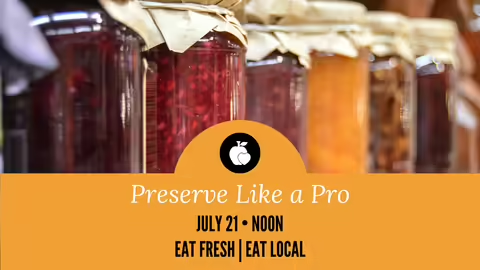MILAN, Ill. – Food preservation is centuries old and has many benefits, but be sure you understand the equipment, space, time, and skills needed before you begin. There are many considerations:
- Start-up costs can be expensive: Consider the cost of canners, jars, lids, dehydrators, and other tools needed to prepare the food and aid in processing.
- Food preservation is time intensive: The process may take several hours, depending on the preservation method selected. Consider your available time before beginning.
- Storage space is needed: Consider the available space available in your pantry and freezer before you begin.
- Misinformation may danger your family: Consider the source used. Canning is a science so it’s imperative that tested recipes are followed. Old cookbooks and cooking blogs may not provide the most up-to-date food preservation practices. Each method - canning, freezing, drying, and fermenting - requires a set of skills to ensure the food is safe today and in the future.
"There are several canning methods being circulated among the home canning groups I see on social media, such as dry canning, open kettle canning, and solar canning," says Kristin Bogdonas, University of Illinois Extension nutrition and wellness educator. “These are not safe or approved canning methods.”
Knowing where to find reputable sources can help consumers safely preserve the shelf-life of their garden bounty or market fare. Extension is providing an overview of safe methods for canning, freezing, drying and fermentation at noon July 21. Register at go.illinois.edu/EatFreshEatLocal. If you need a reasonable accommodation to participate, please email Diane Reinhold, dreinhol@illinois.edu. Early requests are strongly encouraged to allow sufficient time to meet your access needs.
The webinar will last 30 minutes, and participants may ask questions of the nutrition experts following the presentation. Recordings of previous Eat Fresh | Eat Local webinars are available at go.illinois.edu/nutritionwell. The final event in the series will be Aug. 18 on the topic of storing garden harvests.
SOURCE: Kristin Bogdonas, Nutrition and Wellness Educator, University of Illinois Extension
ABOUT EXTENSION: Illinois Extension leads public outreach for University of Illinois by translating research into action plans that allow Illinois families, businesses, and community leaders to solve problems, make informed decisions, and adapt to changes and opportunities.
